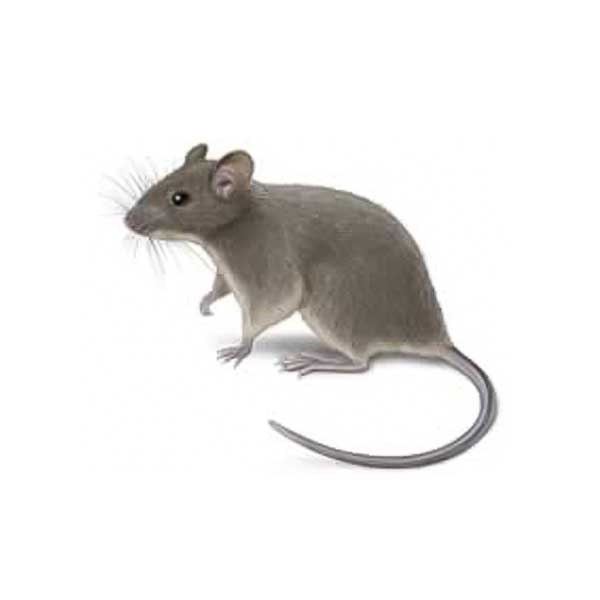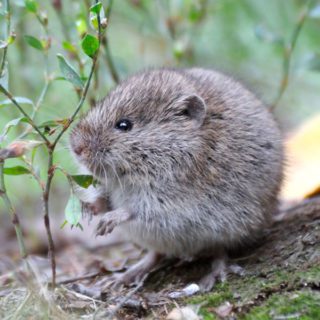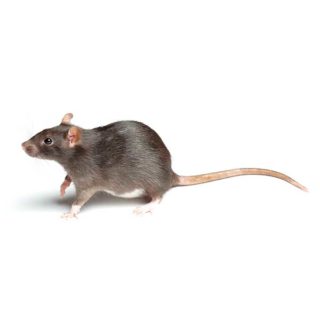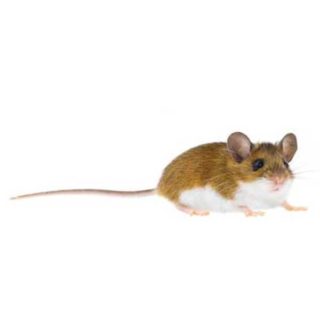The house mouse is found across the United States and ranks as the number one rodent pest in most cities. House mice are commensal, meaning they are generally found living in close association with humans and dependent upon the human habitat for shelter and food. House mice thrive throughout the year and can be found in homes, commercial buildings, open fields, and agricultural lands. They contaminate food meant for humans and pets as they forage, dropping feces and urine along the way. House mice cause considerable damage to structures by chewing through walls and transmit pathogens that cause diseases like salmonella, a form of food poisoning.
Identifying House Mice in Florida
House mice are one of the most common rodents in Florida. They have small, slender bodies with gray or brown fur and light-colored bellies. Their ears are large and round, and they have long, hairless tails. House mice are highly adaptable, often found in homes, garages, and other structures where they seek warmth and food. Their droppings, gnaw marks, and scratching sounds are key indicators of their presence.
Where in Florida Do House Mice Live?
Outdoors, house mice construct nests in fields and beneath trees and shrubs. Indoors, mice will build nests in quiet undisturbed places like wall voids, kitchen cabinets, attics, and garages. Droppings, fresh gnaw marks, and tracks or rub marks indicate areas where mice are active. Nests are made from finely shredded paper or other fibrous material, usually in sheltered locations. House mice have a characteristic musky odor that reveals their presence. Mice are active mostly at night, but they can be seen occasionally during daylight hours.
How Common Are House Mice in Florida?
House mice are extremely common in Florida, thriving in both urban and rural environments. Their adaptability allows them to live in a variety of settings, from homes and apartments to barns and garages. In Florida’s warm climate, they breed year-round, leading to rapid population growth. House mice are often encountered in areas with easy access to food and shelter, making them a persistent pest problem for homeowners. Their widespread presence and ability to cause significant damage make them one of the most prevalent rodent pests in the state.
Are House Mice Dangerous?
House mice contaminate food and are implicated in the transmission of diseases such as salmonella and bubonic plague. The house mouse can cause significant damage to structures by gnawing and tunneling through walls. Mice have also been implicated in the generation of fires and explosions in homes and buildings. Chewed, exposed wires inside walls can spark, causing interior walls to catch fire.
If you have a house mouse infestation in your Jacksonville FL property, always contact a licensed rodent control company.
Need help with House Mouse control?
Need Pest Control Service?
Leave your information below and we’ll be in touch with a FREE quote!
"*" indicates required fields
*During normal business hours. After hours calls will be returned the next business day.
House Mice Control Specialists in Florida
House mice can quickly become a serious nuisance, contaminating food and damaging property. If you’re struggling with a mouse infestation, it’s time to call in the experts. Bug Out offers comprehensive solutions tailored to eliminate these pests and prevent their return. As trusted Florida rodent exterminators, we provide effective, safe, and thorough services to protect your home from house mice. Contact us today to schedule an inspection.
FAQs
What to do when you find a mouse in your house?
If you find a mouse in your house, it’s important to act quickly. Start by setting traps in areas where you’ve noticed mouse activity. Seal any cracks or gaps in walls, floors, and around windows to prevent more mice from entering. It’s also wise to contact a pest control professional, especially if you suspect an infestation, as mice reproduce quickly and can quickly become difficult to eradicate.
Where do house mice usually live?
House mice prefer warm, sheltered areas close to food sources. They often nest in hidden spots like attics, basements, and behind walls. They can also be found in garages, kitchens, and pantries, where food and nesting materials are easily accessible. House mice are among the most common rodents in Florida homes.
Will house mice get in your bed?
While it’s uncommon, house mice can get in your bed, especially if there is food nearby or if your bed provides a safe, warm hiding place. Mice are curious creatures and may explore areas where they detect food or feel secure.
Are house mice harmful?
Yes, house mice can be harmful. They can contaminate food and surfaces with their droppings, which may carry diseases like salmonella. They also cause structural damage by gnawing on wires, insulation, and furniture, posing both health and safety risks.




